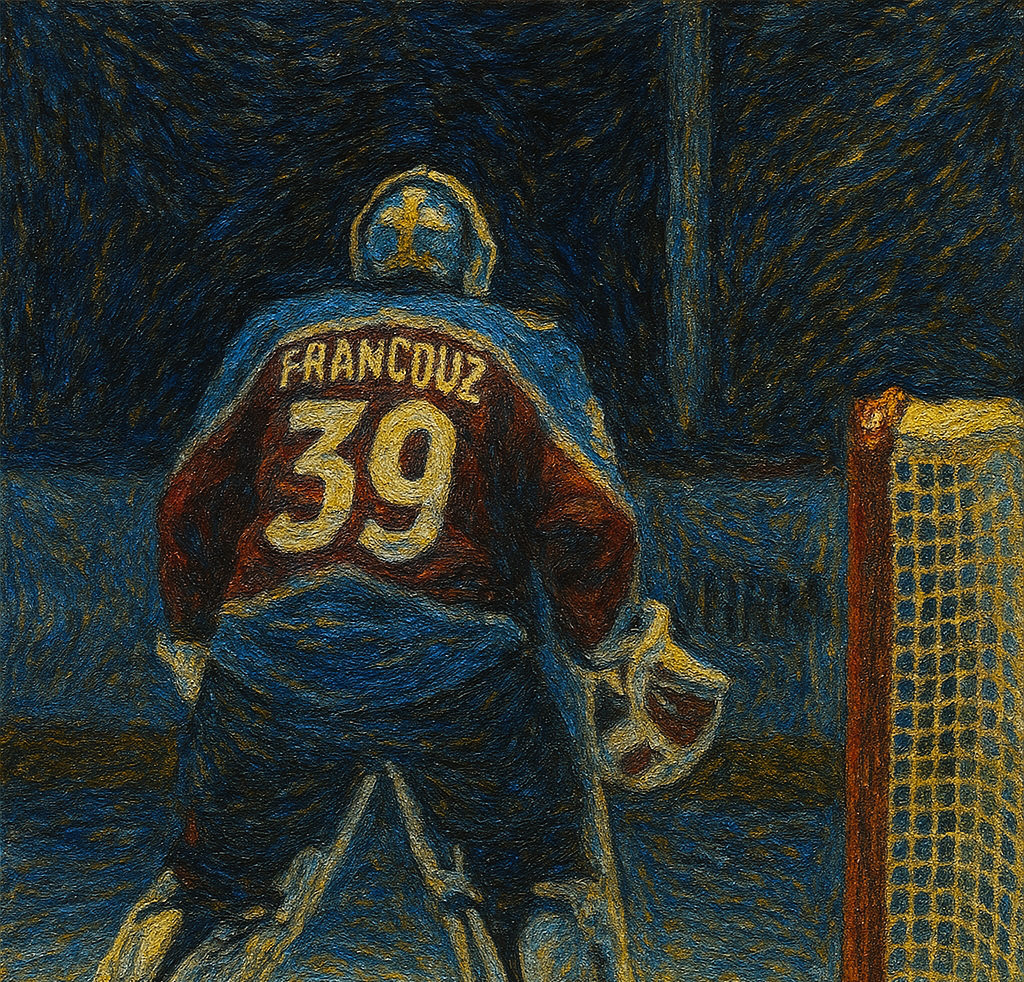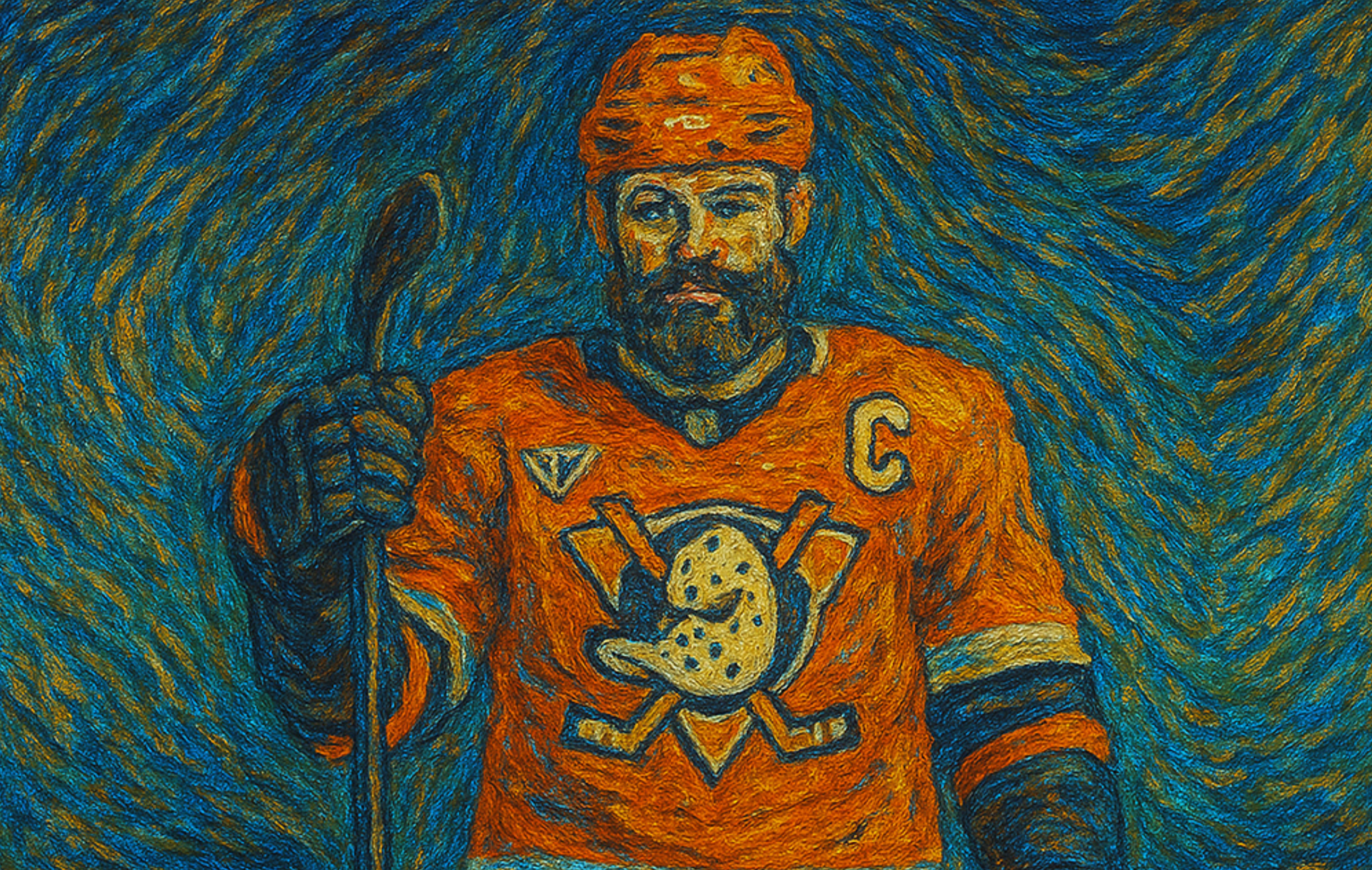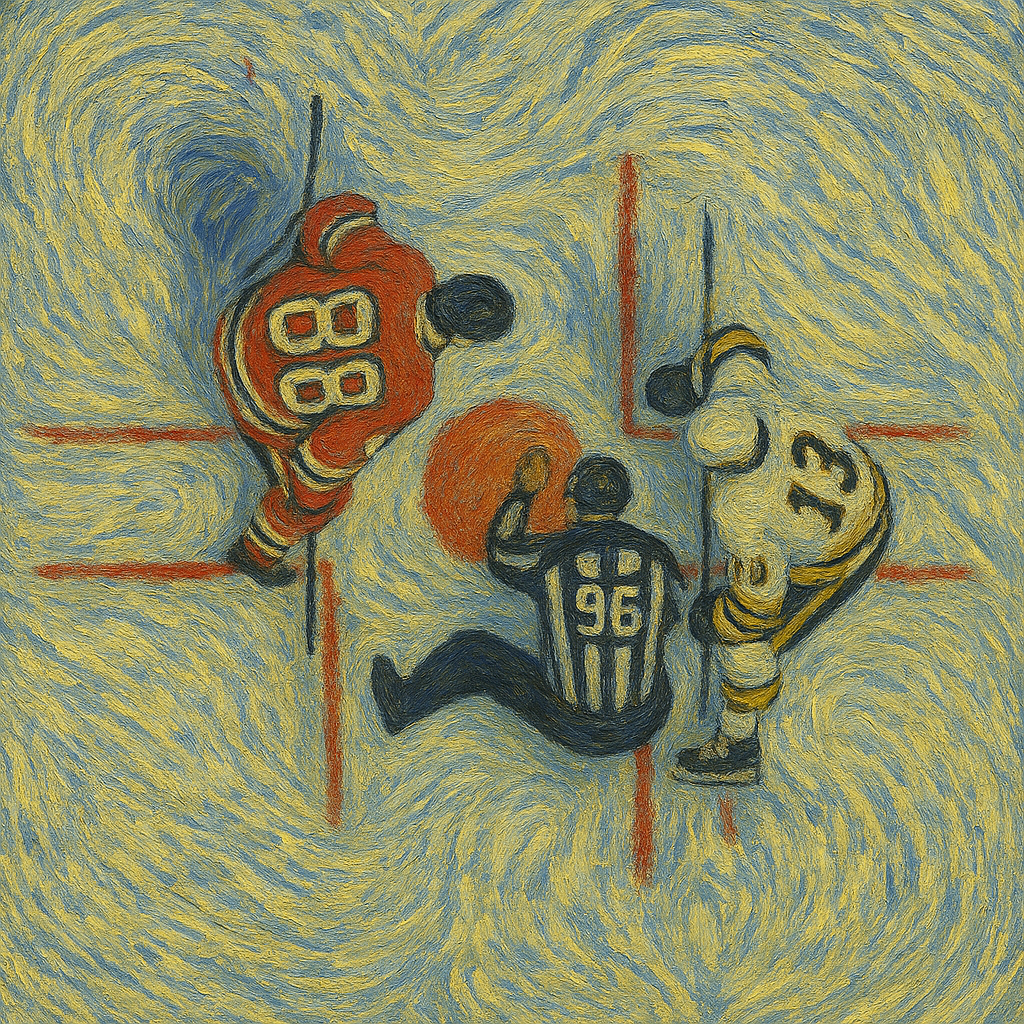· Jaroslav Bezdek · Analysis · 6 min read
The NHL Team Rankings: Overall
We already know which teams are the best in offense, defense, and goaltending. Now, it's time to combine all three aspects and find out which teams were the best overall during the 2024/2025 regular season!

Over the past few articles, we’ve broken down team performance across offense, defense, and goaltending. Now it’s time to pull everything together into one final number: the Overall Performance Score. This score combines all three aspects to provide a complete, data-driven look at how NHL teams stack up as we head into the playoffs.
How the Overall Performance Score Is Calculated
Each team received a score between 0 and 100 in three key areas:
- Offense Score (based on 9 offensive metrics)
- Defense Score (based on 8 defensive metrics)
- Goaltending Score (based on 6 goalie metrics)
The average of these three scores forms a team’s Overall Performance Score. This approach highlights balance between the three categories, because I believe that a team’s success is a result of a combination of all three aspects.
The Results
And the results are in! As shown in the chart below, the top teams overall this season were the Jets, Lightning, Golden Knights, Kings, and Maple Leafs. On the flip side, the lowest-ranked teams were the Sharks, Blackhawks, Predators, Sabres, and Penguins.
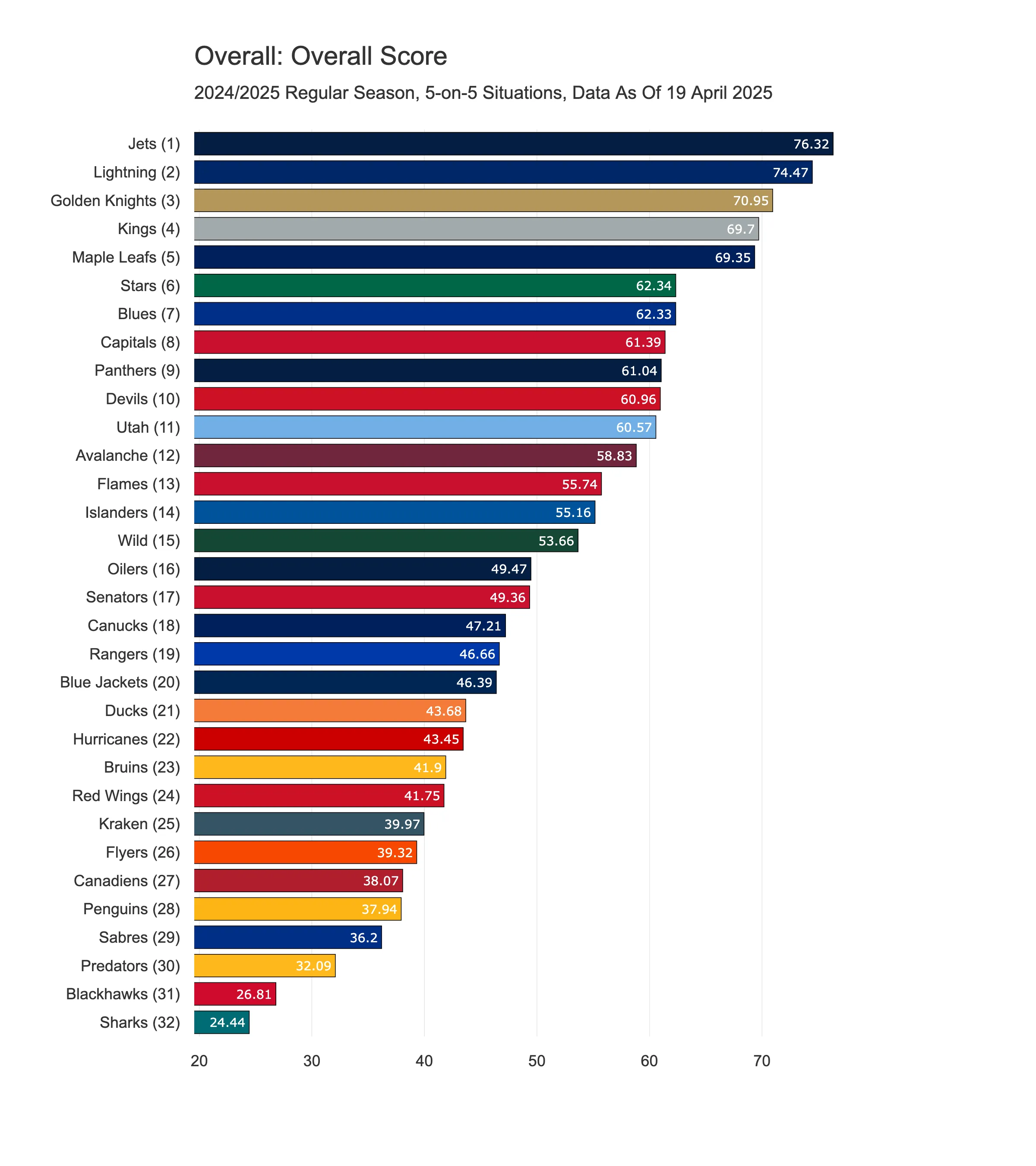
The Detail
I think we’ve already touched on some partial results in the previous articles, but to better understand the factors impacting the Overall Performance Score for every team in the league, I decided to create a scatter plot that compares the Offense Score with the average of the Goaltending and Defense Scores. This allows us to identify the strong and weak aspects of each team.
Some teams ranked high in Overall Performance because they excelled in all areas of their game. Conversely, there were teams that ranked low overall due to weaknesses across the board. But then there are teams like the Oilers, Avalanche, and Hurricanes. These teams rank very highly offensively, but their goaltending and defense aren’t as strong, which is why they don’t top the overall rankings. On the flip side, teams like the Wild and Flames are highly ranked in goaltending and defense, but their offense lags behind. The Wild, in particular, are an extreme example. They ranked 8th in goaltending, 7th in defense, but dead last in offense. This shows an inconsistency in performance across the ice—and it’s quite surprising for a team that managed to qualify for the playoffs!
When discussing playoff teams, I think it’s also interesting to look at the teams that didn’t make it but were actually very close. From the chart below, we can see that teams like the Flames and Utah are much closer to the top teams pack than some others that made the playoffs. This suggests that perhaps Flames and Utah deserved a playoff spot more, but, as we all know, hockey isn’t played on paper, and often, teams need a bit of luck to secure a place among the best!
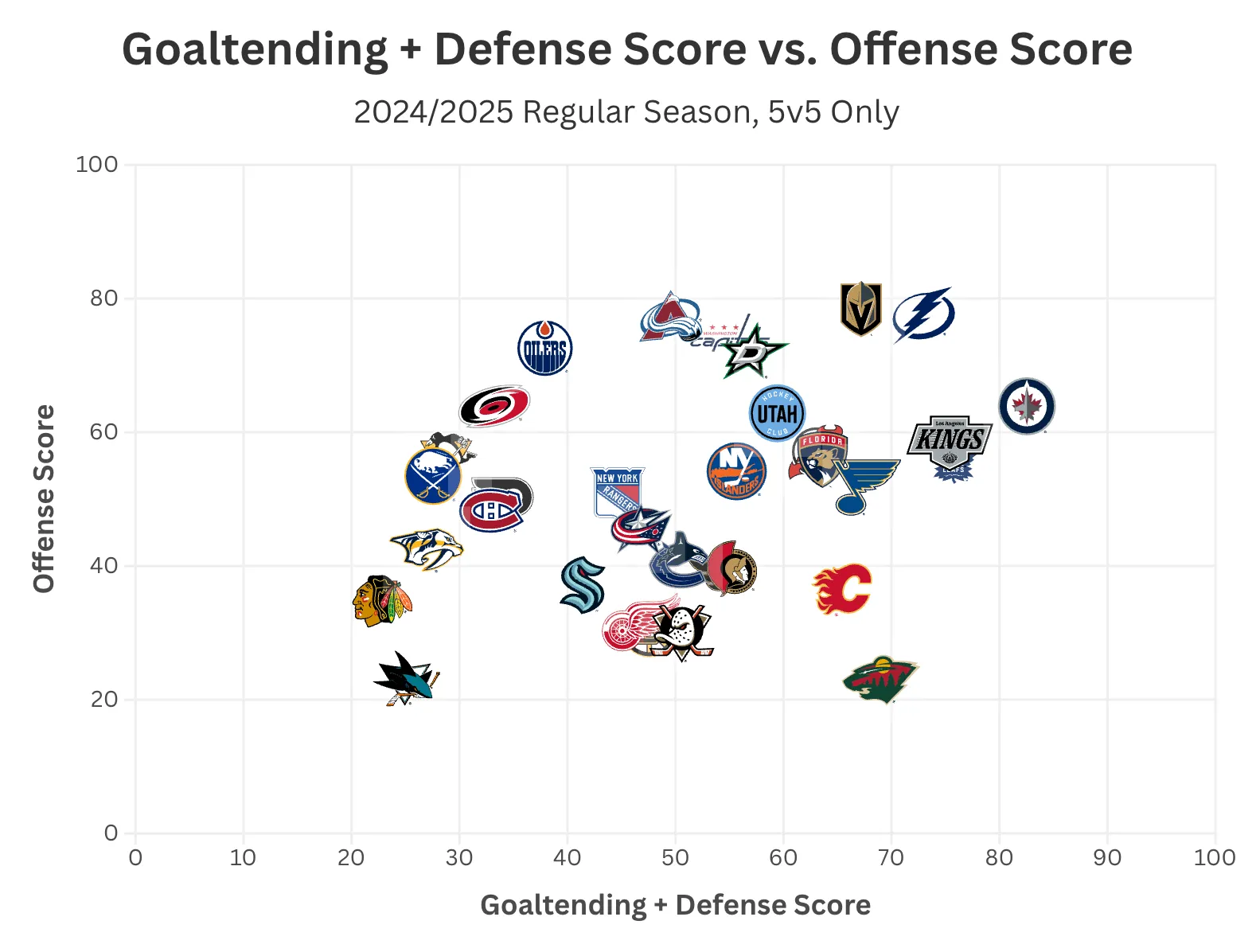
Comparison with the Standings and Odds
Although the Overall Performance Score is based solely on 5-on-5 data, it generally reflects the overall league standings, with a few exceptions. When we focus on the teams that made the playoffs (in the table below), the biggest discrepancies between the standings and the score are found in teams that excel in one aspect of the game but struggle in others. Examples include the Oilers and Hurricanes. Another example is the Canadiens, who are ranked 17th in the standings but 27th in Overall Performance Score, suggesting they’ve been quite lucky to make the playoffs this year.
On the other hand, a team that ranks much higher in the Overall Performance Score (7th) than in the standings (14th) is the Blues. In their case, the main reason seems to be their struggles in special teams situations. Since the Overall Performance Score is based mainly on 5-on-5 data, it makes sense that they appear stronger in this metric than their actual standing reflects.
What also doesn’t align well with the score are the bookmakers’ odds. For example, the Jets rank 1st in both Overall Performance Score and the standings, yet they are only 5th in odds to win the Stanley Cup. While it’s true that Presidents’ Trophy winners often struggle to capture the Cup, I would still expect higher odds for a team that has consistently performed well in all three aspects of the game.
Looking at the odds, it seems that bookmakers are primarily favoring the last two Stanley Cup winners, the Golden Knights and Panthers, as well as teams that rank highly in offense, such as the Avalanche, Hurricanes, and Oilers. On the other hand, team that is least likely to win the Stanley Cup according to the odds is the Canadiens.
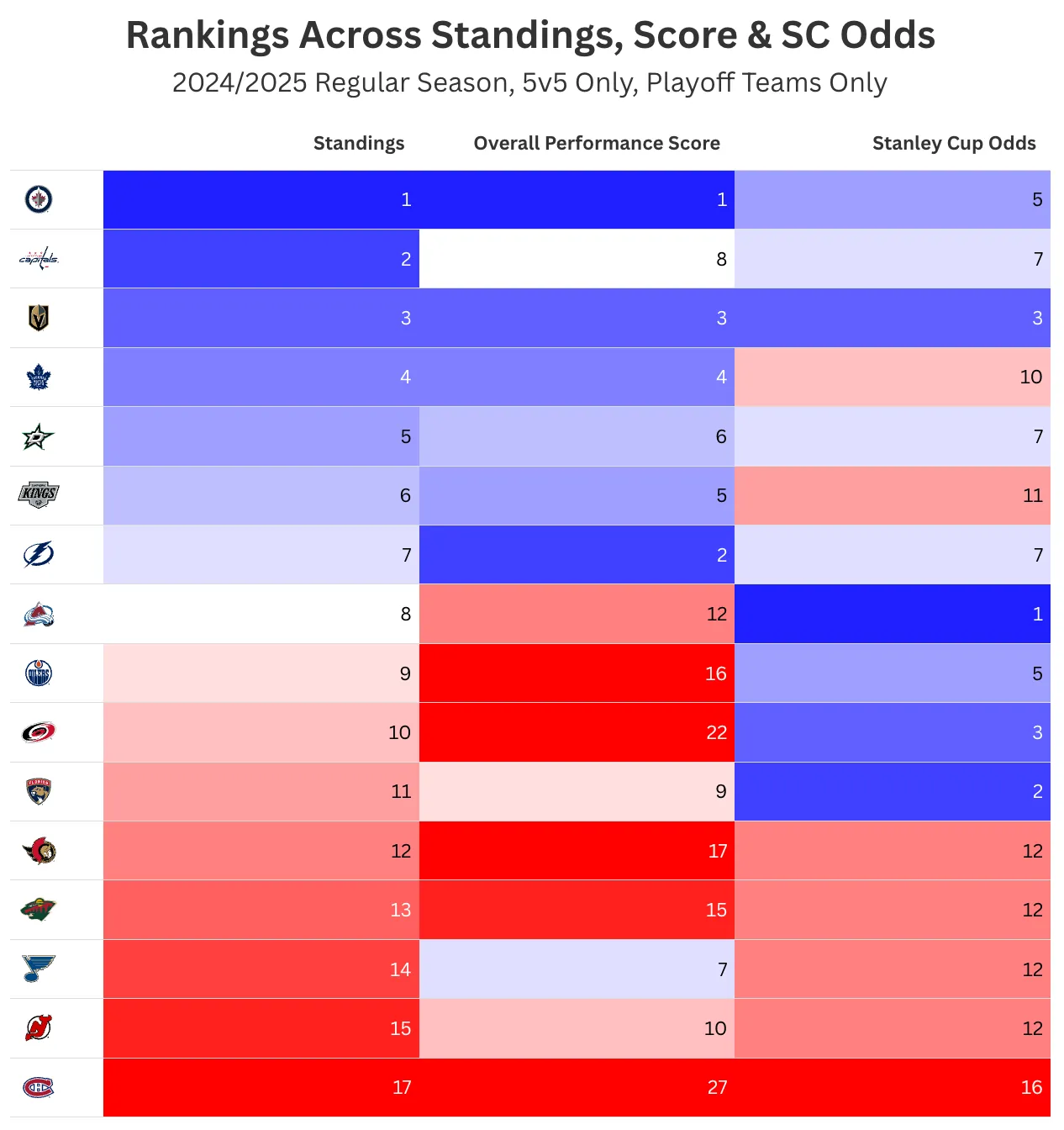
The Form Before Playoffs
We often say that after the All-Star Weekend, teams work to find the best possible line combinations with new players from trades and aim to peak in time for the playoffs. This year, there was no All-Star Weekend, but instead, the NHL 4 Nations Face-Off tournament. And I thought it would be interesting to have a look at how teams performed before and after the tournament to see which teams were able to find their form in time for the playoffs. To do this, I calculated the teams’ scores before and after the tournament, deducted the results from each other, and created the score differentials. I’ve summarized the results in the table below.
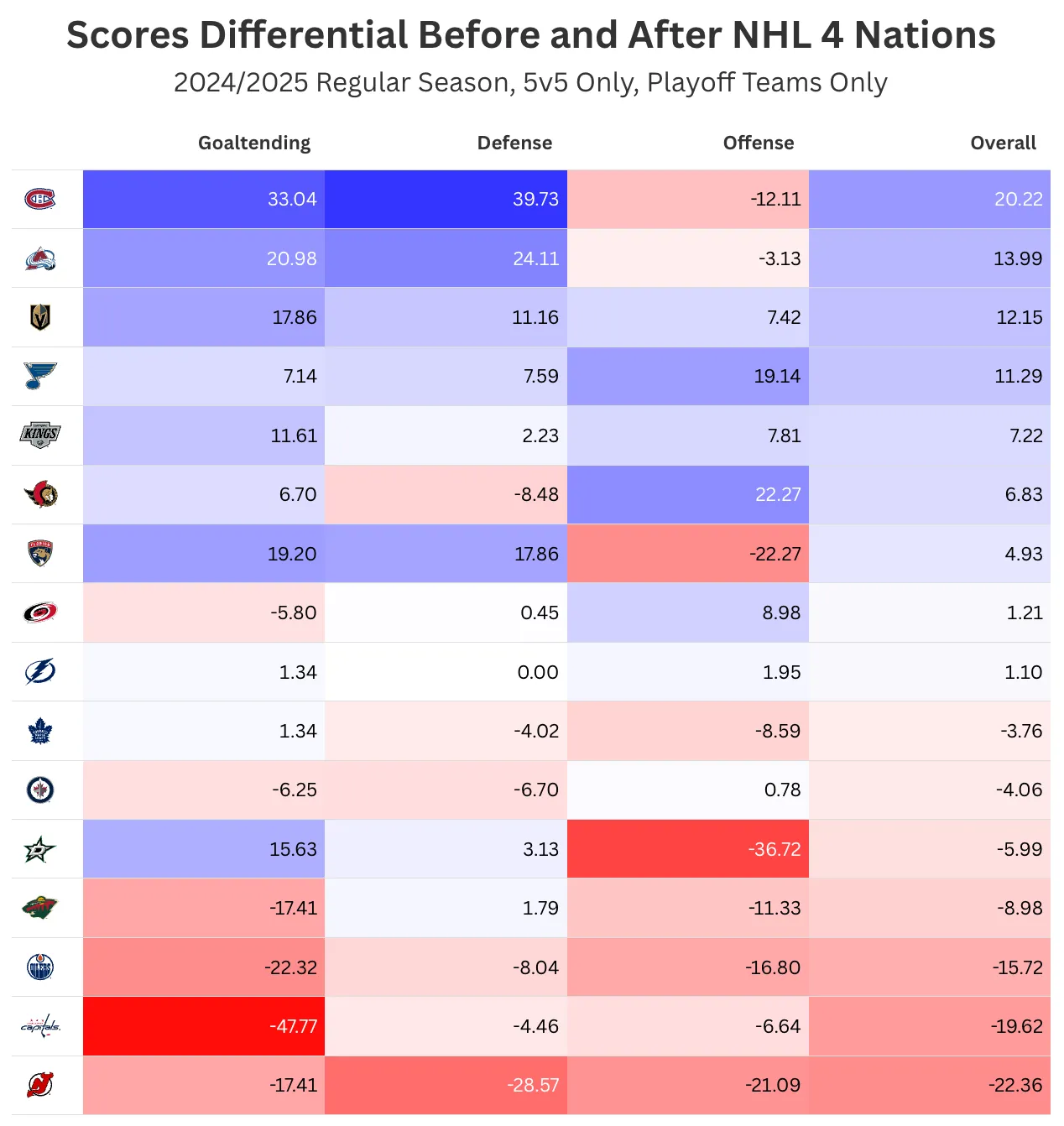
The team that has improved the most is the Canadiens. We’ve criticized Montreal for their poor results earlier in the season, and while it seems like only Habs fans believe they’ll make it past the first round against the Capitals, we have to give them credit for the strong form they’ve shown since the 4 Nations Face-Off tournament (15-5-6). Compared to the start of the season, they’ve improved in goaltending and defense. Even though their offense has declined slightly, the addition of young Russian forward Ivan Demidov from the KHL, who scored 2 points in his first NHL game, gives hope that their offense will improve in the playoffs.
When we look at the score differentials of their first-round opponent, the Capitals, we see they’re positioned on the opposite end of the spectrum, which could give the Canadiens an advantage. So, how will this matchup play out? Will the young talents from Montreal be able to take down a team led by the NHL’s best goal scorer, Alexander Ovechkin? I honestly can’t wait for this series to begin!
Final Message
This is the end of the NHL Team Rankings series. I hope you enjoyed it and learned something new. If you did, please share it with your friends and colleagues. If you have any feedback or just want to say hi, please reach out to me on LinkedIn.
LinkedIn is also the place to be if you want to stay updated on new articles and get the latest information about new features on my other projects, like Frozen Facts Center. So don’t hesitate to follow me there!
Thank you for reading! ♥️
